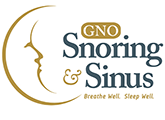Have you ever woken up from a restful night’s sleep only to be told by a partner that you were snoring loudly? Or perhaps you’ve noticed a decline in your ability to breathe comfortably through your nose? Nasal polyps might be the hidden culprits. These non-cancerous growths can not only disrupt peaceful nights but also negatively impact your overall health.
Let’s dive into understanding nasal polyps and their link to snoring.
What Are Nasal Polyps?
Nasal polyps are gentle, non-painful growths that develop from the inner lining of the nasal pathways or sinuses. Resembling droplets or grapes, they’re commonly associated with allergic reactions or asthma. Although typically benign, they can cause respiratory difficulties, loss of smell, and recurring infections.
One key thing to remember about nasal polyps is that they’re not like the polyps found in other parts of the body, like the colon. They’re not precursors to cancer. However, they can make life uncomfortable, especially when they contribute to nighttime disturbances like snoring.
How Do Nasal Polyps Lead to Snoring?
Snoring is caused by the vibration of tissues due to obstructed air movement during breathing while sleeping. Anything that obstructs the airway can result in snoring. Nasal polyps, given their location, can contribute significantly to this obstruction. Here’s how:
- Blocking the Nasal Passage. Even small nasal polyps can make it challenging to breathe through the nose because of their location. Larger ones can block nasal passages entirely. When this happens, an individual might resort to mouth breathing, which can be a significant factor in snoring.
- Causing Turbulent Airflow. Even if the polyps don’t block the nasal passages entirely, they can change the way air flows. This turbulent airflow can cause surrounding tissues to vibrate more, leading to louder snoring.
- Increasing Dryness. Breathing through the mouth because of nasal obstructions can dry out the throat. A dry throat is more susceptible to the vibrations we recognize as snoring.
Thus, while they might seem insignificant, nasal polyps play a substantial role in the complexities of sleep disturbances, especially snoring.
Treatment Options for Nasal Polyps
Understanding the link between nasal polyps and snoring is essential, but knowing how to treat them is equally crucial.
- Nasal Steroid Sprays. The most common treatment, these sprays can reduce the size of the polyps or even eliminate them. Examples include fluticasone, triamcinolone, and budesonide.
- Nasal Polyp Surgery. For larger, more obstructive polyps, surgery might be required. The procedure, known as polypectomy, is usually done on an outpatient basis.
- Medication. If nasal polyps result from conditions like allergies or asthma, treating the root cause can often reduce the size and symptoms of the polyps.
- Lifestyle Changes. Humidifying your home, staying hydrated, and avoiding irritants like tobacco smoke can also play a role in managing and preventing nasal polyps.
Exploring the right treatment for nasal polyps not only alleviates discomfort but can pave the way for better overall respiratory health and sleep quality.
How Can Addressing Nasal Polyps Improve Sleep?
Treating nasal polyps doesn’t just alleviate snoring; it can lead to overall better sleep quality. With clearer nasal passages, there’s less likelihood of waking up due to breathing difficulties. This means more uninterrupted sleep cycles, leading to better rest and recovery. Moreover, less snoring can also ensure that partners or roommates enjoy peaceful nights.
Nasal polyps, though small and benign, can have a big impact on your quality of life and sleep. Recognizing their presence and seeking appropriate treatment can make a world of difference, leading to quieter nights and better health. If you suspect nasal polyps might be the cause of your snoring, don’t hesitate. Schedule a consultation with GNO Snoring & Sinus today and reclaim your peaceful nights.

